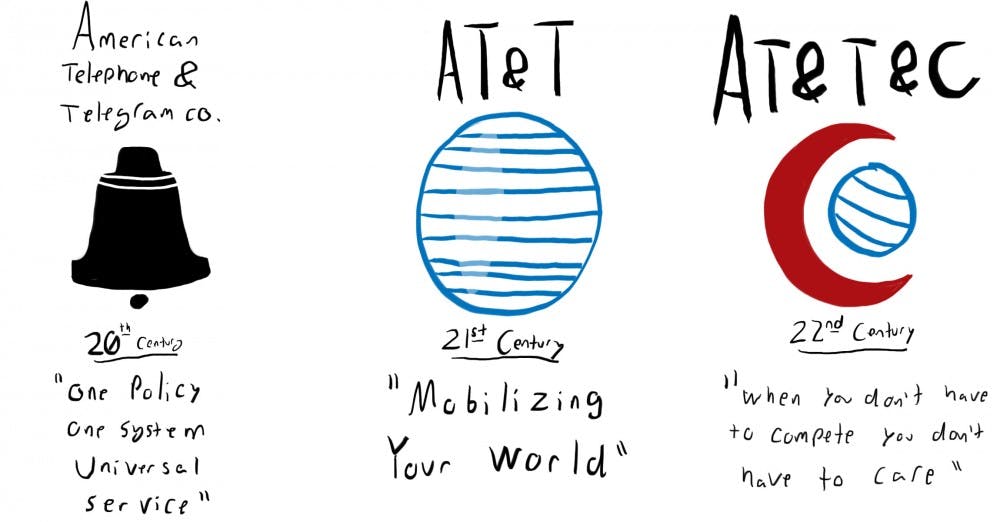In one of this year’s largest mergers, AT&T has announced its intentions to buy Time Warner for $85 billion.
Both HBO and CNN will come under AT&T’s control, meaning that the company will transform into a content-streaming, profiteering giant. Monopolization within the media will be brought to previously unthinkable heights if this merger proceeds. Our media needs more diversity of opinion, not a single corporate machine that controls all major media outlets.
Many are right to be skeptical of the deal, as past mergers of this type, such as the AOL-Time Warner deal in 2000, have rarely benefited consumers. Even a “Fortune” article voiced criticism of the deal’s effects on consumers and cited a practice called “zero-rating,” which allows the company to charge non-subscribers fees to view licensed content. Essentially, this merger will allow the exploitation of the ways consumers stream content to diminish competition and allow for price fixing.
Sen. Bernie Sanders has posited that rejecting the merger would “preserve our democratic discourse and open competitive markets for speech and commerce.”
As thoughtful and populist as Sanders’ words may sound, they ignore the fact that the candidate he supports has received $260,000 and $464,000 from AT&T and Time Warner, respectively, in 2016. Given these facts, it is hard to believe that Clinton will appoint regulators to the FCC that will oppose the merger.
Furthermore, the Clinton family has a deep history of providing corporate welfare to the telecom industry. President Bill Clinton signed the Telecommunications Act of 1996, which is directly responsible for allowing such mergers to occur. The law’s stated objective was “to provide a pro-competitive, de-regulatory national policy framework ... opening all telecommunications markets to competition.” This is a case study in blatant contradictions in the neoliberal ideology of free market competition.
This law not only stifled competition through deregulation but also required the state’s permission to use public airwaves.
A pure free market advocate would say that deregulation of industries is vital for the economy, and that state interference should be prohibited.
However, deregulation can only be achieved with the state’s consent, as evidenced by this law. This is an inherent contradiction to conventional economic thought. This is not to advocate for any economic system, but to merely point out a glaring hypocrisy in free market rhetoric.
All things considered, what are we then to make of the AT&T-Time Warner deal?
We must identify corruption at work. Mainly, that the regulators who oversee things like the FCC are usually the insiders of the very industries they are supposed to regulate. This is achieved through the magnificently corrupt campaign finance process, which ensures that presidential appointees will not exercise regulatory power.
Lastly, we must recognize that the neoliberal rhetoric sold to us is a total lie.
Deregulation, trickle-down tax cuts and corporate welfare do not help the middle class. In fact, these policies have slowly whittled away at working people’s dignity for years. The AT&T-Time Warner deal is a symptom of the dysfunctional unity of state and corporate power, a corrupt system whose legitimacy must be challenged.




